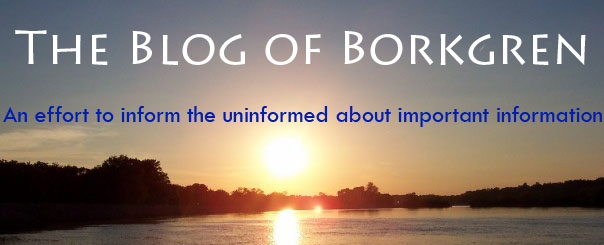The Democratic Party and Barack Obama perfected the use of the internet in 2008. This is not necessarily because Obama or his campaign manager David Axelrod is such savvy politicians, and it isn’t because the Democratic Party had an epiphany. In 2004, the internet just hadn’t matured enough yet.
The bread-and-butter of Obama’s campaign was social networking sites. YouTube, Myspace, Facebook, Twitter, Blogs, and their sister sites, either didn’t exist or were in their infancy stages in 2004. The only people who knew about and used these sites were the internet savvy and computer nerds. In 2004, one couldn’t even sign up for Facebook without a college e-mail address and only the largest division I universities had been given permission to be included. Smaller schools and private schools were still petitioning for inclusion.
The old way of social networking is dead. The day of the $5,000 a plate fundraising dinner has been proven unnecessary. According to an article by The Atlantic, in February 2008, Obama raised $55 million dollars. $45 million of that came from online donations, and he never hosted a single fundraiser. Micro giving has replaced the fat check. Obama’s website was set-up so the people could donate $20 or even less. Additionally, people could program the system to deduct the sum on a monthly basis like a magazine subscription. Therefore, people could budget their donation over many months instead of writing a single, larger, check.
According to the Minnesota Independent, 49 percent of Obama supporters initially donated less than $200. By the end of the campaign, 47 percent had given at least $1,000 and Obama had collectively attracted 100,000 more individual donors than both 2004 candidates combined.
The combination of the maturation of social networking sights and the foresight of Obama and Axelrod to use these sights on an unimaginable scale is the reason Obama overcame a large deficit to beat Hilary Clinton in the Democratic primary and to beat McCain by a 2-1 margin in the Electoral College in the presidential election.
Going into election night, official Obama video posted on YouTube had viewed collectively for 14.5 million hours. According to Joe Trippi, to purchase 14.5 million hours of time on television would cost roughly $47 million, depending on when the time is aired.
Post election, the use of new media has continued. Each week, Obama releases a short video message through his website. These messages are very reminiscent of FDR’s Fireside Chats in there form, structure and rhetoric, so there is nothing new about them politically. What makes them significant is that Obama is choosing to release them via the internet instead of through a news network. Of course the messages quickly make their way to the nightly news, but this conscience decision and selection of the internet to emphasize what his administration finds important is drastically different from previous presidents.
To date, Obama has racked up 13 million e-mail addresses, and counting, in his database. And those social networking sights still have donation links on every page. Currently, the only use of these e-mail addresses and constant funding is to help persuade the general public to support specific legislation when he deems it necessary.
However, when 2012 rolls around, the Democratic Party will have already assembled an arsenal of political ammo to defeat the Republican opponent. Obama related Facebook and Myspace groups will continue to grow until 2012. His YouTube page will continue to add videos and collect hits, thereby spreading the Democratic message and persuading swing voters. Change.com will continue to collect donations.
Barack Obama and the Democratic Party have revolutionized American politics for only the third time since George Washington was elected. FDR was the first to extensively use the radio and thus replaced the cross-country train trips. Then, Kennedy used the television to put a face on politicians and the radio became second fiddle. Obama has shown the internet is the medium of the future and the television will soon become something from our parents’ generation of politics.




No comments:
Post a Comment